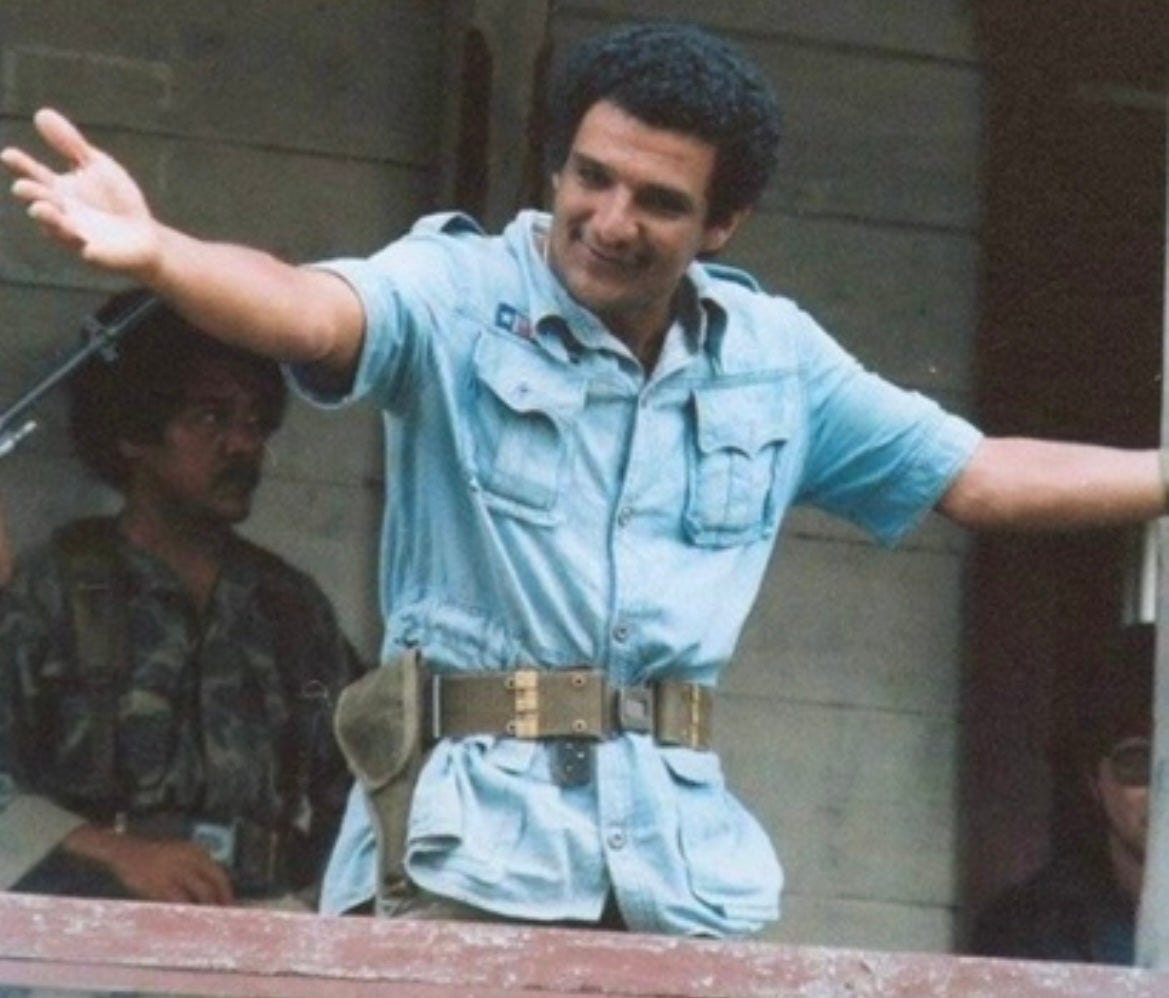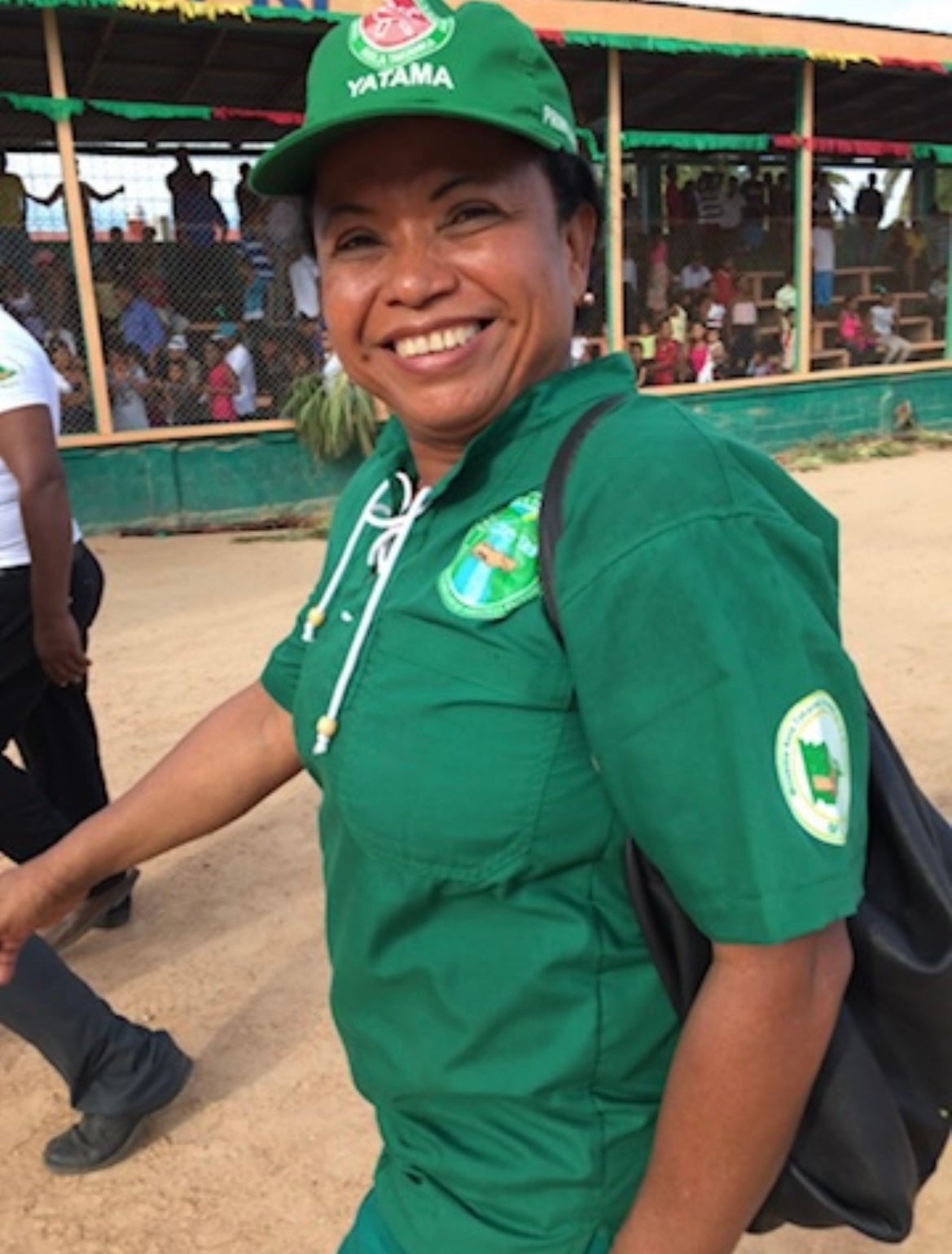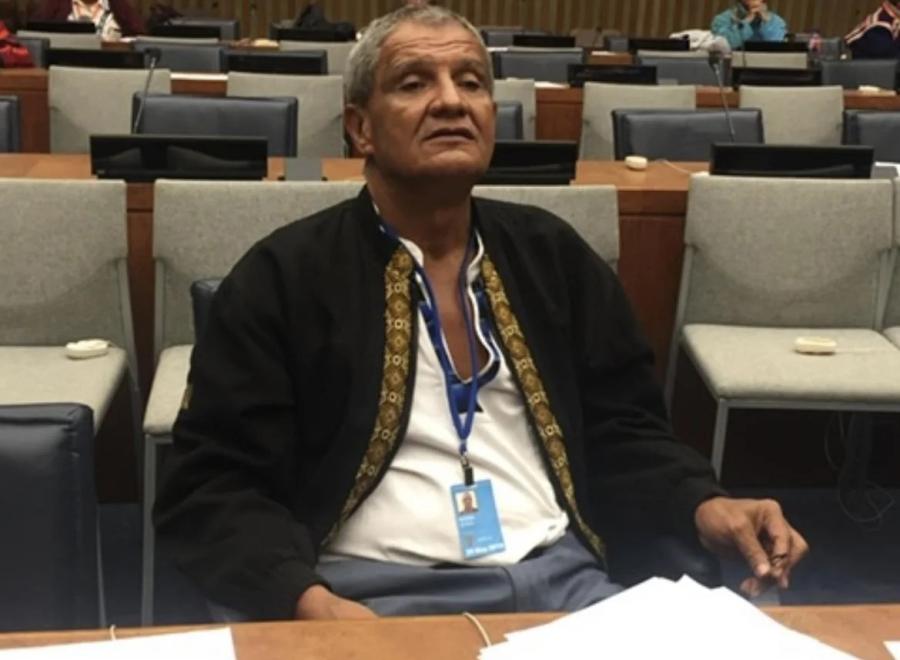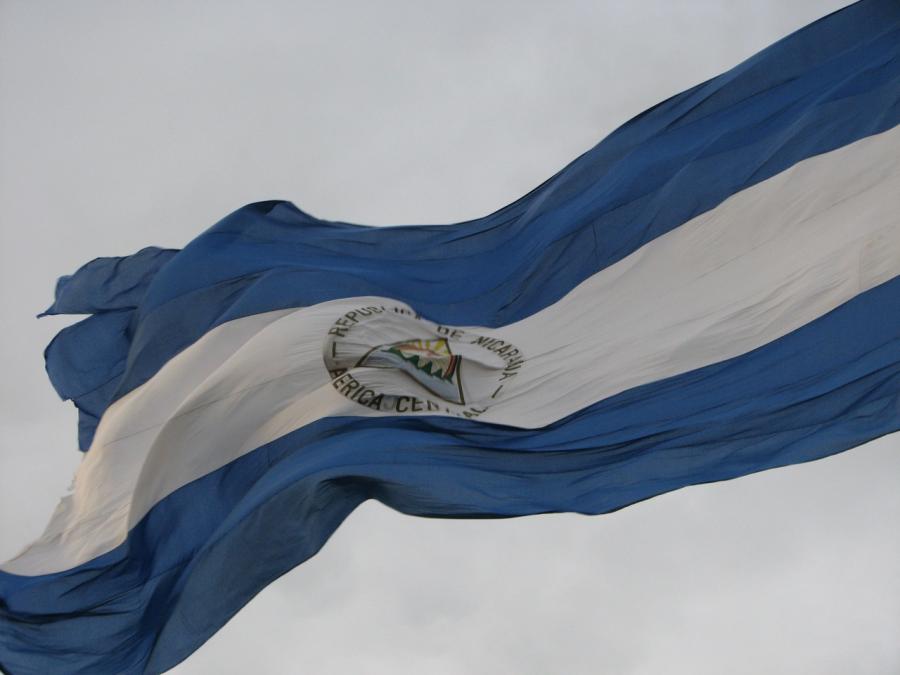
By Laura Hobson Herlihy
Indigenous Peoples’ rights advocate Brooklyn Rivera (Miskitu), the guiding force of the Nicaraguan Miskitu Peoples for more than 40 years, was arbitrarily and illegally detained at his home in Bilwi-Puerto Cabezas early on September 29, 2023, just five days after his 71st birthday. Ortega’s Sandinista police forces, sent from Managua, illegally seized his property.
Uniformed police agents also raided the headquarters of YATAMA (Yapti Tasba Masrahka Nanih Asla Takanka/Children of Mother Earth), the social and political organization Rivera founded in 1987, in the Bilwi coast and Waspam River capital. Police confiscated YATAMA’s radio equipment and shut down Radio Yapti Tasba, a community-based radio station broadcasting in the Miskitu language, and a Cultural Survival Indigenous Community Media Fund grant partner.
Rivera’s daughter, Tininiska Rivera, reported that Sandinista police disguised as Nicaraguan health workers on routine malaria checks first gained entry to Rivera’s home. The national police force followed, taking Rivera into an ambulance for unknown reasons―either to tend to a medical condition or to hide his arrest from townspeople—and took him to the community of Sahsa, where he was transferred to another police vehicle and driven to Managua.
Rivera was disappeared until October 2, when reports emerged that he was being held in El Chipote, the jail many refer to as the torture prison of President-turned-dictator Daniel Ortega and his Vice President and wife, Rosarillo Murillo. While in El Chipote, Rivera’s blood pressure was said to have fallen dramatically and he was taken to a hospital in Managua where he is reportedly being treated for a stroke with police guarding his room. If he recovers, he is to be returned to El Chipote.

Rivera and Ortega have a storied history together. Ortega was the Nicaraguan president at the time Rivera helped lead his people in the U.S. CIA-backed Contra War (1981-1987) within the Sandinista Revolution (1979-1990). Largely due to the success of the Indigenous and Afro-descendant Caribbean coast Contras, the Sandinista state awarded two politically autonomous pluri-ethnic regions, the North and South Caribbean Coast Autonomous Regions, to the coastal Peoples in 1987, a monumental gain for Indigenous land rights worldwide.
At the time of his arrest, Rivera was still officially listed as the only YATAMA legislator or deputy in the National Assembly. Rivera was elected in 2006 and again in 2011 after making an alliance with the Sandinista party. However, after breaking the YATAMA-Sandinista alliance in 2014, Rivera was accused of selling Indigenous lands and supporting violence over land conflicts in the Wangki Twi-Tasba Raya territory. He was deposed without a trial and removed from office in 2015, only to be voted back into office by his supporters the following year, and reelected in 2021.
Rivera’s recent problems began at the United Nations Permanent Forum on Indigenous Issues in April 2023, at which he had been warned not to speak against the government. He attended the Forum with Carlos Hendy, a Miskitu leader living in the U.S., who was not bound by any such restrictions.
Hendy spoke about his son, Mark Hendy, a Miskitu youth leader in the YATAMA organization, who was murdered in January 2020 at his home in Bilwi in a crime that was never fully investigated. Hendy spoke about the violent invasion of Miskitu lands and his son’s murder, accusing the Nicaraguan government of human rights abuses against Miskitu land defenders and political leaders. Rivera tried to distance himself from Hendy during his remarks, even standing from his chair and exiting the room while Hendy spoke.
During Rivera’s own three-minute intervention, he spoke in a restrained manner, careful not to speak blatantly against the Nicaraguan government. In spite of his efforts, possibly because of his association with Hendy, the Sandinistas imposed immigration restrictions impeding his reentry into Nicaragua. Rivera defied the Ortega regime by entering Nicaragua through the Honduran Moskitia and covertly crossing the Wangki-Coco River international boundary in a boat, following a historic migration path for the Miskitu people.
Two weeks after returning to Nicaragua, Rivera was still in hiding. He finally spoke to his people in a pre-recorded Radio Yapti Tasba broadcast on May 18, stating, “I came back as a leader of my people, for my work in the National Assembly, and for my family.” He then explained what he said at the UN that had upset the Sandinista government: “I mentioned the case of Anexa Alfred,” but, he insisted, “I said nothing against the government which would cause them to obstruct my entrance, and my UN speech is available to see on YouTube.”
Rivera had voiced solidarity with Alfred, a member of the YATAMA Board of Directors and one of seven members of the United Nations High Commissioner for Human Rights in Geneva, who had received similar immigration restrictions in 2022 for her work with the UN on Indigenous and human rights.
At the time, Alfred spoke about Rivera’s immigration restrictions: “Deputy Rivera is a benchmark and is a bastion of the struggle of the Miskitu Peoples in Nicaragua, and the message is to decapitate him,” further commenting that Nicaragua’s totalitarian regime squashes all voices of opposition and that blocking Rivera’s reentry was “an attempt to silence the Indigenous Peoples, as the regime violently dispossess their Indigenous and Afro-descendant lands and runs a campaign of genocide against the Miskitu people.”
Government-supported land invasions and political repression have caused the forced exile of as many as 15,000 Miskitu people since Ortega assumed power in 2007. Ortega was re-elected for the 4th consecutive time and 5th overall in 2021. Many people are currently in asylum proceedings in the U.S.
Rivera’s Case for Legal Entrance into Nicaragua
Rivera believed he had the international right, as an Indigenous person and as an Indigenous leader, to enter the Nicaraguan Moskitia through its contiguous Honduran territory. In a video posted by Alianza Mesoamericana on May 19, Rivera looked the part of a political prisoner, with a sheet hanging behind him to disguise his locale. He reminded his supporters that “Indigenous people have the international right to be in their place of origin and bordering Indigenous territories as decried by International Labor Organization Indigenous and Tribal Peoples Convention 169,” which Nicaragua ratified in 2010. He said, “this is my territory, and for us there is no border…for Miskitu people, there are no borders between Honduras and Nicaragua.” The binational Moskitia region predates both the Republics of Honduras and Nicaragua and was not incorporated by these nation states until 1860 and 1894, respectively.
Rivera emphasized that he had been elected through popular vote to congress as decided by the pueblo (the people), and that no one could take away the people’s mandate. He detailed how YATAMA leader Elizabeth Henríquez, who was his legal substitute, or alternate, in congress, had been fulfilling all of his lawmaking duties, and that he had submitted official paperwork arranging for his substitute before he left for the UN. He also pointed out that by National and Autonomous Law 28, an Indigenous leader has the right to direct their pueblo. He then signed off and remained on the run, changing safe houses in Bilwi for five months, until he was captured in his home.

Liza Henríquez reported on October 1 that as her mother, Elizabeth Henríquez, was leaving Moravian church services in Managua, the Commissioner of the 3rd district told her he needed to take her to a meeting with Rivera. After boarding the vehicle, however, Henríquez was also arbitrarily and illegally detained and is now being held in El Chipote. Henríquez had served as the Director of YATAMA and was YATAMA’s only regional councilor.
On October 3, the Nicaraguan government officially revoked YATAMA’s legal status, bringing to an end a 36-year-old Indigenous movement that served as the only opposition party and mass political force in the Caribbean coastal region. Presently, YATAMA representatives are being pursued and arrested, and police and crowd control forces from Managua have militarized the towns of Bilwi and Waspam. Patrols have been reported in rural communities to prevent any possibility of an Indigenous uprising. This is a developing story.
-- Laura Hobson Herlihy is a lecturer in Latin American & Caribbean Studies at the University of Kansas.
Related: Public statement by the American Council of Indigenous Peoples (ACIP).



